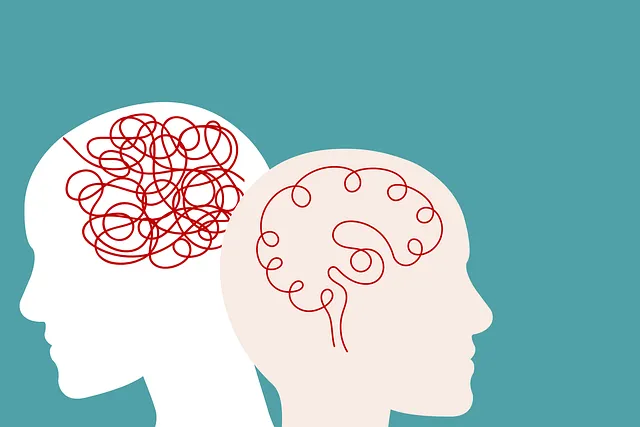In today’s media landscape, the representation of mental illness plays a pivotal role in shaping public perception. This article delves into the impact of media portrayal on mental health awareness, specifically examining how institutions like Kaiser facilitate understanding. We explore the current state of therapy representations and highlight the urgent need for diverse, accurate portrayals. By analyzing strategies to enhance media sensitivity, we empower audiences to initiate crucial conversations about mental health, fostering environments where individuals like those at Kaiser with good therapists can receive support and find hope.
- Understanding the Impact of Media Portrayal on Mental Health Perception
- Exploring the Current State: How Does Kaiser Measure Up?
- The Need for Diverse and Accurate Representation in Therapy Portrayals
- Strategies to Enhance Media Accuracy and Sensitivity Towards Mental Illness
- Empowering Audiences: Encouraging Conversations Around Mental Health Through Media
Understanding the Impact of Media Portrayal on Mental Health Perception

The media’s portrayal of mental illness can significantly shape public understanding and perceptions about mental health. When depicted accurately and sensitively, media platforms have the potential to destigmatize mental disorders and encourage help-seeking behaviors. However, inaccurate or simplistic representations can lead to further misconceptions and marginalization of individuals living with mental illnesses. This is where the role of responsible media becomes crucial, especially in providing a platform for diverse narratives and promoting evidence-based practices. For instance, showing characters with well-rounded personalities and effective coping strategies, like those promoted by Mind Over Matter Principles, can offer viewers hope and practical guidance.
Organisations like Kaiser, known for their comprehensive healthcare services, including excellent therapists in Parker, can contribute to positive change by collaborating with media outlets to ensure accurate representation. They can provide crisis intervention guidance and support for accurate storytelling, ensuring that the public receives reliable information about mental health resources available. Encouraging such partnerships is vital to promoting a healthier mental health discourse and offering much-needed social skills training for both audiences and creators alike.
Exploring the Current State: How Does Kaiser Measure Up?

In exploring the current state of mental illness representation, particularly within healthcare institutions like Kaiser, it’s essential to scrutinize their resources and practices. Does Kaiser have good therapists? The answer lies in examining both the quantity and quality of services offered. Many patients praise Kaiser for its extensive network of healthcare professionals, but access can vary. Some communities may face challenges in finding specialists, especially those focused on niche areas like anxiety disorders or depression management (Mood Management).
Kaiser’s commitment to mental wellness is further illustrated through initiatives like their Mental Wellness Podcast Series Production, which aims to destigmatize conversations around mental health. These efforts promote resilience building and provide valuable resources for patients seeking support. However, for a comprehensive evaluation, patient experiences and outcomes should be analyzed, ensuring that the quality of care aligns with the positive impressions of Kaiser’s capabilities.
The Need for Diverse and Accurate Representation in Therapy Portrayals

In today’s digital era, media plays a pivotal role in shaping societal perceptions, especially regarding mental health. The need for diverse and accurate representation in therapy portrayals cannot be overstated. When it comes to finding good therapists, does Kaiser have good therapists Parker is a common query, highlighting the importance of realistic and varied depictions in media. Too often, mental illness is portrayed stereotypically or exaggeratedly, which can lead to misinformation and stigma. By showcasing diverse therapeutic practices and cultural sensitivities in mental healthcare (Cultural Sensitivity in Mental Healthcare Practice), media has the power to enhance Mental Health Awareness and improve access to care for all audiences.
Portrayals that include various conflict resolution techniques (Conflict Resolution Techniques) and reflect different backgrounds, identities, and experiences can help reduce the stigma associated with seeking therapy. Accurate representation ensures that individuals struggling with mental health issues see themselves reflected in media, fostering a sense of understanding and encouraging them to seek professional help without fear of judgment or misunderstanding.
Strategies to Enhance Media Accuracy and Sensitivity Towards Mental Illness

Media plays a significant role in shaping public perception about mental health. To challenge stereotypes and promote understanding, various strategies can enhance accuracy and sensitivity when portraying mental illness. One approach is to consult with mental health professionals, such as those at Kaiser, to ensure stories are told responsibly. Including diverse narratives and characters experiencing different types of disorders can also help normalize these conditions.
Additionally, organizations like the Stress Management Workshops can provide valuable resources for creating Crisis Intervention Guidance within media content. Encouraging accurate representation through education and collaboration can foster a more compassionate society. By implementing these strategies, media platforms can contribute to breaking down stigma while offering practical solutions, ensuring that those seeking help find accurate information and support, including top-quality therapists like those at Kaiser.
Empowering Audiences: Encouraging Conversations Around Mental Health Through Media

Media plays a pivotal role in shaping public perception about mental illness. By accurately and sensitively representing individuals living with various conditions, it has the power to educate audiences, dispel myths, and foster empathy. When media portrays mental health challenges in a nuanced and authentic light, it empowers viewers, encouraging open conversations around these issues. This shift can lead to reduced stigma and better understanding within communities, as people feel more comfortable discussing their own experiences or reaching out for support.
For instance, successful media campaigns and shows with diverse characters grappling with mental health struggles have sparked important dialogues. They’ve inspired viewers to seek help, connect with others facing similar challenges, and promote coping skills development. Even platforms like Kaiser, known for its excellent therapists in Parker, can leverage the power of media partnerships and community outreach programs implementation to provide resources and support to a wider audience. By integrating conflict resolution techniques within these initiatives, they can further strengthen the impact, fostering supportive environments where individuals feel safe to discuss their mental health journeys openly.
Media representation of mental illness plays a pivotal role in shaping public perception and understanding. By promoting diverse, accurate, and sensitive portrayals, we can foster more compassionate attitudes towards individuals living with mental health challenges. As evidenced by the current state analysis, including examining Kaiser’s offerings, there is room for improvement. Implementing the proposed strategies to enhance media accuracy and empowering audiences through open conversations about mental health are essential steps forward. Encouraging positive change, these efforts can lead to a more inclusive and supportive society, where everyone feels seen, heard, and understood, especially when it comes to seeking therapy, as demonstrated by the need for diverse representation in this context, including whether Kaiser has good therapists in Parker.






